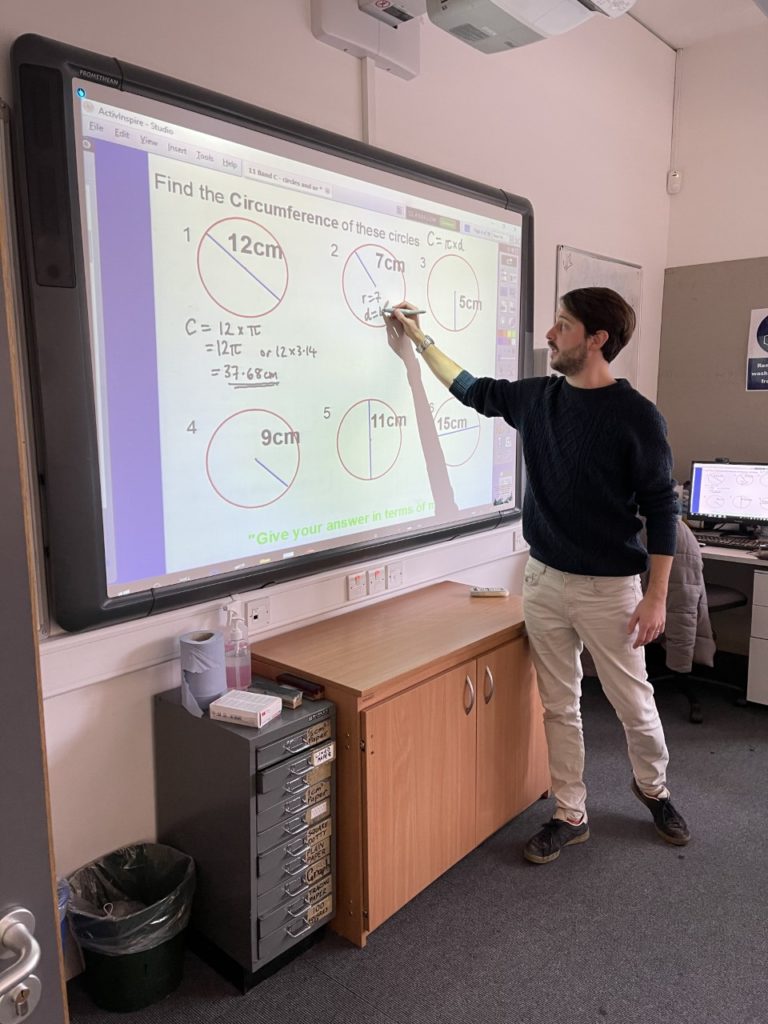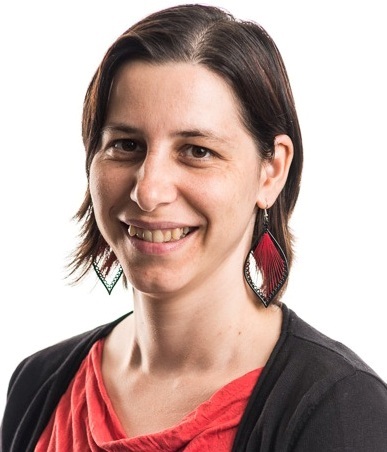What motivates a Maths teacher to return to life as a student? From reigniting a love of learning to getting their head around applied statistics, teachers Sebastian Bicen, Donato Schiavo and Leonard Pistol share their experience of going back to school.
The reputation for being one of the most difficult A-level subjects is something that Mathematics has found hard to shake. Yet with rising demand for STEM teachers, it’s increasingly common for educators to find themselves teaching Maths with no experience of further study in the subject.
That’s how Sebastian Bicen, a History graduate from Oxford University, found himself teaching Maths through the Teach First training programme in 2010. Indeed, it’s easy to assume that stress around subject knowledge was what prompted Sebastian’s return to further study.
“You might expect that I went back to university because someone told me I needed a Maths degree,” he explains, “but in reality, even people with Maths-related degrees often don’t want to teach A-Level or Further Maths. Instead, it was being back in the classroom and seeing my students’ passion for the subject that reignited my own love of Maths and my enthusiasm for learning.”
The buzz of the classroom is something fellow teacher Donato Schiavo, who completed his MSc Mathematics in 2013, can relate to: “I remember as a student I really enjoyed explaining concepts and helping my friends with their homework,” he explains, “that pleasure of helping others made me realise I could be a teacher myself.”
Looking for a study route that would complement his work, Sebastian enrolled onto Birkbeck’s Graduate Diploma in Mathematics on a part-time basis: “It’s quite rare for universities to offer something that bespoke, like a personal conversion course where I could jump in at my level and not repeat the concepts I already knew.” Sebastian managed to secure partial sponsorship from his employer and, as a union member, was eligible for a 10% fee discount from Birkbeck.
What’s the point?
While every Mathematics classroom has students who love the subject for its own sake, there are many more who need some convincing, as Maths and Further Maths teacher Leonard Pistol discovered: “A lot of my students were interested in studying Maths at university, but not in becoming Mathematicians. They wanted to know how Maths could be applied in other fields and I felt like I came a bit short in providing personal, real world experience.
“I thought MSc Mathematical Finance would be a really good application. When I was talking to my students about it, I was able to give them concrete applications of the use of statistics and probabilities. The more into the applications I got, the more interested I became and the easier it was to teach as a result.”
For Donato, who now teaches at an international school in Italy, deepening his understanding of Mathematical concepts was a way to engage students in the subject: “When I tell people that I’m a Maths teacher they always say ‘I was so bad at Maths’ – it’s rare to meet someone who enjoyed Maths as a student. I had some wonderful teachers who shaped my idea of what Mathematics can be – solving a problem and understanding the logic that underpins it.
“A lot of my students can’t see the point of studying Maths, so I try to bring in examples that are tangible, like developing passwords or working out the dimensions of a room. The course helped me bring fresh examples to the classroom and teach at a higher level.”
Back to school
So, how did it feel being on the other side of the desk?
“As teachers, we forget what it’s like to be a student,” Sebastian admits, “It was really humbling being in the same boat as my students and having to take my own advice on revising! I experienced first-hand what worked and which things I was telling my students to do that even I wasn’t doing in practice.”
Re-living the university experience also enabled Sebastian to prepare sixth form students for higher education: “I want to treat my year 12 and 13 students as maturely as possible, knowing that they will be going to university. Having access to online lectures and notes from Birkbeck was really reassuring and helped me stay organised, so now I do that for my students as well. I give them lecture notes just like I had to help them experience what university teaching is like. Recording my lessons has been the biggest transformation to my teaching and the response from students has been amazing.”
Leonard, too, found that heading back to university supported his role as a Year 13 tutor: “I had fresh experience of the academic environment, so could give my students up to date advice on lectures and what life would be like. Being able to advise students on what modules to take for their specific goals was really valuable. I was reminded of the expectations lecturers have of you: asking for help, making sure you see your lecturers often, and that’s linked very much to what it’s like to be a teacher.”





